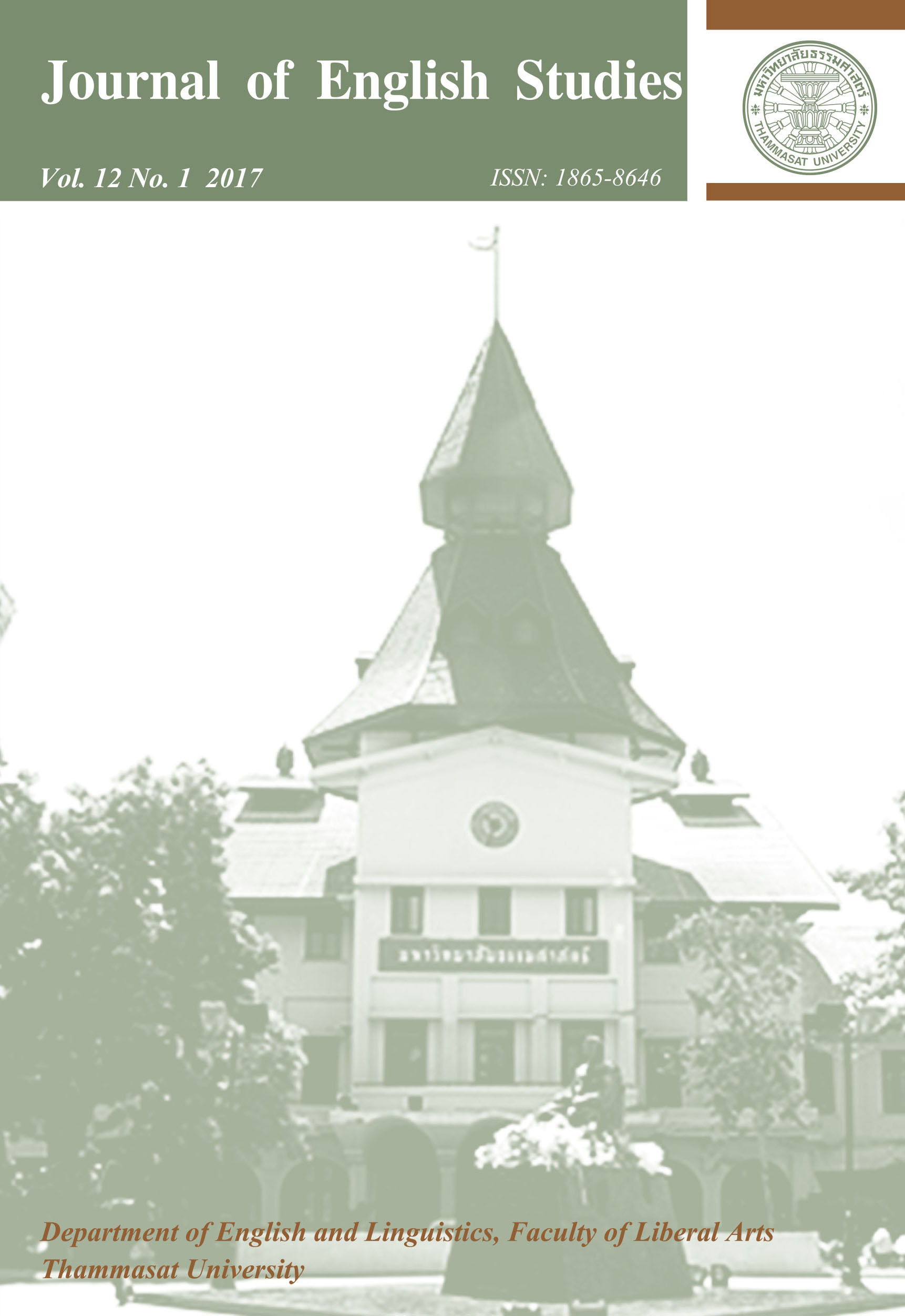A Corpus-Assisted Critical Metaphor Analysis of General Prayuth Chan-o-cha’s English Subtitled Weekly Addresses on Politics and Democracy-Related Issues in Times of Political Turmoil
Main Article Content
Abstract
Abstract
In recent years, metaphorical linguistic expression has been shown to play a significant role in representing a thought-provoking and novel way of viewing the world and assisting individuals in understanding more about the meaning of linguistic realization. As a result metaphorical analysis has attracted a great deal of scholarly
attention in various fields over a wide range of textual typologies. This study aims at examining the types of conceptual metaphor used in the English subtitles of General Prayut Chan-o-cha’s weekly addresses during times of political crisis in order to reveal the underlying political ideologies in relation to the politics and democracy-related issues. The present study also applied a corpus-assisted approach and the Metaphor Identification Procedure (MIP) to identify the conceptual metaphors. The finding reveals seven categories of conceptual metaphor are used, including MACHINE AND TOOLS, JOURNEY, BUILDING AND CONSTRUCTION, HUMAN, WAR, ANIMAL (BIRD), and OBJECT. Data analysis indicated that the conceptual metaphor of MACHINE AND TOOLS appeared to be the most frequently used comparing to other types. The study also suggests that Thai military government, led by General Prayut Chan-o-cha, has exploited metaphorical expressions in order to shed light on the hope of seeing the democratic-building processes becoming accepted by both the Thai populace and the international community.
บทคัดย่อ
ในปัจจุบันนั้น สำนวนภาษาเชิงอุปลักษณ์นั้นมีบทบาทสำคัญที่แสดงถึงวิธีในการกระตุ้นความนึกคิดและแนวทางที่แปลกใหม่ในการมองโลก อีกทั้งยังเป็นการช่วยให้ผู้คนเข้าใจความหมายเชงิ กระจ่างทางภาษาศาสตร์มากยิ่งขึ้นผลที่ตามมาคือการวิเคราะห์ อุปลักษณ์จึงเป็นที่ดึงดูดความสนใจเพื่อการศึกษาเชิงวิชาการในหลากหลายสาขาวิชาที่เกี่ยวข้องกับการศึกษารูปแบบและสัญลักษณ์เชิงตัวบท งานวิจัยชิ้นนี้มีวัตถุประสงค์เพื่อศึกษาประเภทของอุปลักษณ์เชิงมโนทัศน์ที่ใช้ในวาทกรรมทางการเมืองในช่วงเวลาของวิกฤตการณ์ทางการเมืองไทย เพื่อทำให้เห็นถึงอุดมการณ์ทางการเมืองที่เกี่ยวเนื่องกับประเด็นทางการเมืองและประชาธิปไตยที่ซ่อนอยู่ งานวิจัยชิ้นนี้ได้มีการประยุกต์ใช้แนวทางการศึกษาโดยการช่วยจากคลังข้อมูลและกระบวนการระบุอุปลักษณ์เพื่อระบุอุปลักษณ์เชิงมโนทัศน์ ผลการศึกษาพบอุปลักษณ์เชิงมโนทัศน์ทั้งหมด 7 ประเภท ประกอบด้วย เครื่องจักรและเครื่องมือ การเดินทาง อาคารและสิ่งก่อสร้าง มนุษย์ สงคราม สัตว์ (นก) และ สิ่งของ
จากการวิเคราะห์ข้อมูลพบว่ามีการใช้ อุปลักษณ์เชิงมโนทัศน์ในรูปแบบของเครื่องจักรและเครื่องมือจำนวนมากที่สุดเมื่อเปรียบเทียบกับอุปลักษณ์เชิงมโนทัศน์ประเภทอื่น งานวิจัยชิ้นนี้ชี้ให้เห็นว่ารัฐบาลทหารไทยนำโดยพลเอกประยุทธ์ จันทร์โอชา ใช้ถ้อยคำเชิงอุปลักษณ์เพื่อให้เกิดความกระจ่างในแง่ของความหวังที่จะเห็นกระบวนการสร้างประชาธิปไตยให้เป็นที่ยอมรับทั้งชาวไทยและประชาคมนานาชาติ

